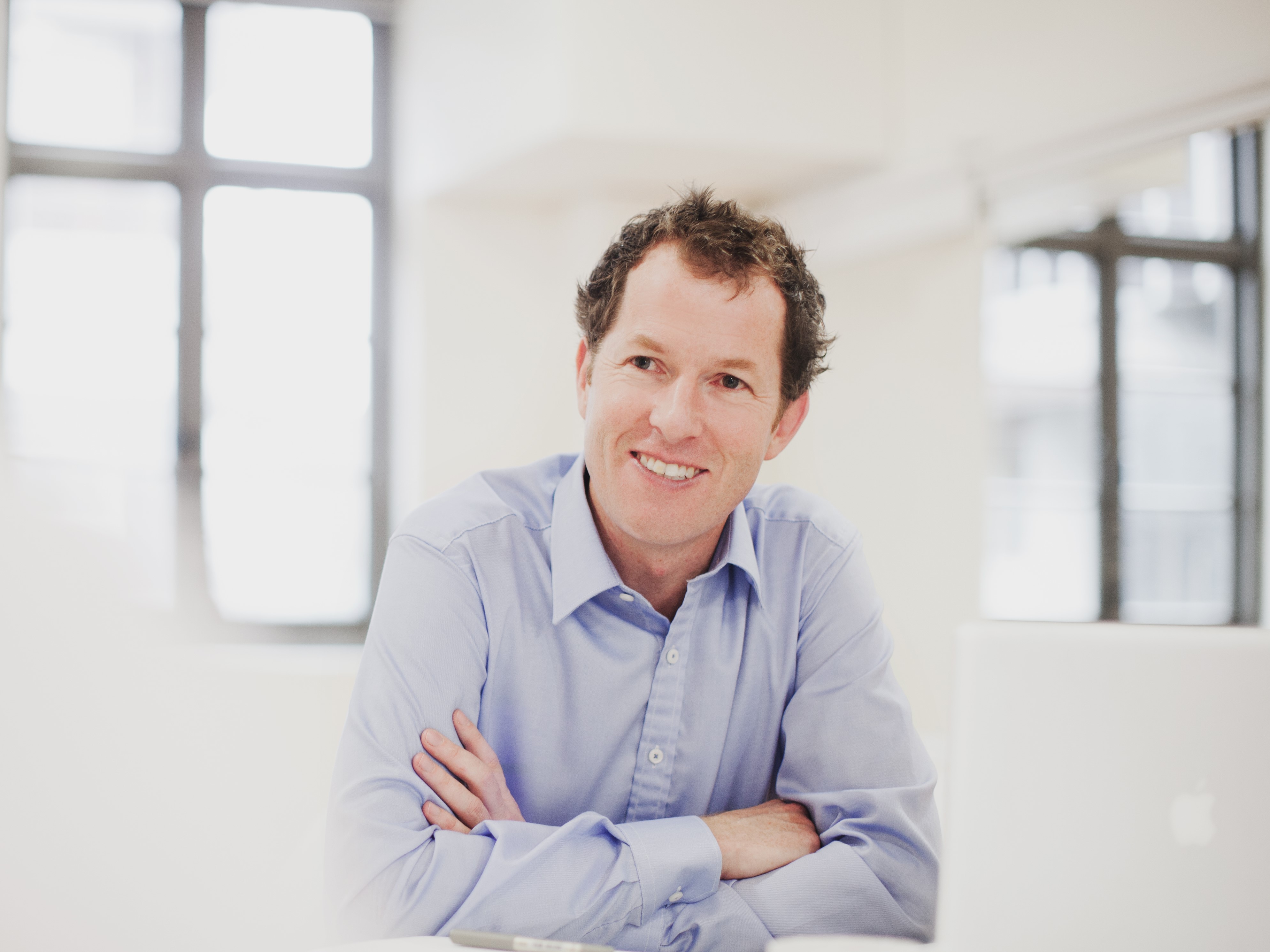Claro is a specialist health sector law firm with offices in Christchurch, Wellington and Auckland.
Its team has a breadth of experience in this important area of law.
“Perhaps what I enjoy most about working in the health sector is the variety,” says one of the two partners, Dr Jonathan Coates.
“In any given week, our team is likely to be prosecuting or defending a health practitioner before the Health Practitioners Disciplinary Tribunal, advising on a difficult governance and conflict of interest issue for a DHB Board, working on some litigation involving the structure of health services or clinical negligence, advising on how to manage a practitioner who is failing, seeking urgent treatment orders from a court for an incompetent patient, or advising on a large outsourcing arrangement.”
The firms’ origins lie in a large national law firm. Staff have been serving the legal sector for five years.
Claro covers all key legal aspects of the health sector including medical law and treatment issues, compensation and claims for damages, mental health, disability and health and safety.
Behind the name
The move to establishing Claro was a natural fit for the partners, Dr Coates and Anita Miller, as they were already specialising in health law and the health sector generally.
Claro means clarity and focus.
“We didn’t want to do the traditional last name/ last name law practice. Claro comes from Spanish and Portuguese origin. Claro resonates with our brand values of being very clear and concise as to who we are and what we do. It’s a name that has taken on more meaning over time,” says Dr Coates.

Dr Jonathan Coates, Partner
When meeting the Claro team, a strong sense of passion for the health sector, and the health law area of practice, is evident.
“For me, I find it a very human aspect of law, a fascinating interface between science, people and law,” says Ms Miller, who is currently completing a Master of Laws at Victoria University, Wellington.
She is a specialist in the regulation of health professionals, and she advises extensively on the Health Practitioners Competence Assurance Act 2003.
Dr Coates has been included in Best Lawyers in New Zealand in the practice areas of Health Care Law and Medical Malpractice Litigation.
Work-life balance
Flexibility is a key component of the success story at Claro with many of the legal team members juggling busy work commitments with young families.
“As flexible employers, we are equally lucky that we have flexible employees. Some of our team will work a minimum number of hours. Some will start at half past seven and they’ll finish work by mid-afternoon so they can pick the kids up from school. We’re quite relaxed with that because the work gets done,” Ms Miller says.

Anita Miller, Partner
Technology helps make this style of working arrangement efficient and, like many law firms, all Claro employees have access to firm documentation through the cloud.
“But that’s not intended for people to be working all night. It’s more like, ‘so one of my kids has a cross-country race this afternoon. I’m going to go home at lunchtime, finish this job, go off to watch the race’. It’s that level of flexibility we offer.”
Jonathan Coates, who has a PhD in health law, says their number one driver is meeting client demand and that is never compromised.
“Sometimes you have to work different times of the day to achieve this. We’re happy for people to fit in everything else that they’ve got on in their lives. And it seems to work well for us. We have to be different because we are working across three offices. We’re a paperless office, so we access our files electronically from wherever we have wi-fi.”
While small law firms tend to specialise in a particular area of practice such as employment or environmental law; Claro is different in that it is focused on a sector rather than an area of legal practice.
At Claro, support and professional development is a priority.
“We meet as a whole firm weekly to discuss the jobs we have on and also meet on a monthly basis where one of us will talk about a recent case or legal issue that has come up. We also do a similar thing with one of our client’s in-house legal team. One of us will present on an issue and we will discuss it with them,” Anita Miller says.
Dr Coates says they also spend a lot of time working with clients to ensure they understand their legal obligations in the health sector.
Working in the Pacific
The general manager and policy consultant, Rachael Heslop, isn’t a lawyer but plays a key role in regulatory work the firm is involved in, as her background is in public policy.

Rachael Heslop, General Manager/Policy Consultant
Recently, she visited the remote South Pacific atolls of Tokelau, which has a population of less than 1,500, to help set up a regulatory regime for health professionals based there.
The work is ongoing and Claro is assisting Tokelau with drafting legislation. The project is not without its challenges.
“It’s a one-day boat trip to get there from Samoa. It’s a big undertaking to get there as the boat goes once every two weeks,” she says.
Dr Coates has previously been involved in similar work in other Pacific countries, including Papua New Guinea, before Claro was established.
“It’s about providing a basic regulatory framework such as determining who can safely provide health services there such as doctors and nurses,” he says.
Turned upside down’
Aisling Weir and Peter Le Cren are both based in Claro’s Auckland office.
Ms Weir is a mother of two young children, and a commercial lawyer. In her previous life she worked at a large national law firm and has also held in-house roles.
Mr Le Cren is a special counsel, focused on litigation, who has three primary school age children.

Aisling Weir, Consultant
“When you have children, your whole life is turned upside down and so the way you need to work changes completely,” Ms Weir says.
At Claro, she normally works two days a week but will periodically increase her hours in order to work on larger projects that the firm has on.
“For example, we recently assisted a DHB with a large procurement project, worth over $100 million, for diagnostic laboratory testing services.
“During that project I was working 30 and sometimes 40 hours a week but once the project was over, I went back to my normal hours. Working this way requires me to have very flexible childcare arrangements and that can be tricky at times but it also means that I get to do interesting work and spend a good amount of time with my kids while they are little,” she says.
Ms Weir says it’s a flexibility she could not find working in her previous role at a large law firm.
Another aspect of the adaptability is working from home. Belinda Johns works one day a week from home as do other staff members from time to time. As Mr Le Cren explains, in a sense Claro lawyers all work remotely because the offices are spread over three cities.
“The reality is we all spend a lot of time over the phone with each other every day. We operate as an integrated firm. We are not three separate islands doing different things.” he says.
“The partners (Jonathan and Anita) trust us to meet the needs of our clients while practising in a way that works for us as individuals,” Ms Weir says.
And the health sector stretches from Bluff to Kaitaia, so the firm’s clients are not found in just Christchurch, Wellington and Auckland.
Working during maternity leave
Ms Weir says when she had her second child and was halfway through maternity leave, Claro called to gauge whether she might be able to get involved in a project.
“Jono rang me and asked if I was prepared to come back for a while to help with a big job the firm had on. My answer was “yes, absolutely” – the project sounded interesting and as employers, Claro had shown me flexibility and trust so I was happy to reciprocate. My daughter played on the floor of our board room when we had internal project meetings,” she says.

Peter Le Cren, Special Counsel
Peter Le Cren does a mix of litigation and medico-legal work, along with some governance and employment law work. During his 20-year career, he spent 11 years as the medico-legal counsel for Auckland District Health Board.
“I’m a huge supporter of our work structure. Everyone has different overlapping expertise so, for example, Anita Miller, has been in a two-week disciplinary hearing for a health practitioner. The hearing is in Auckland and Belinda Johns, who works part-time, has been supporting her,” he says.
Ms Johns, a mother of three school age children, has a strong background in health law. She worked on a successful appeal to the Privy Council on the issue of medical negligence.
Getting out of the office to visit clients is something Claro prioritises, so staff will often hit the road to the provinces.
Mr Le Cren says that face-to-face approach comes down to a deep consideration for the health sector.
“I worked as an in-house lawyer for many years and closely with clinicians and managers running healthcare services. It matters to us. It’s not just about an income stream, it’s about a passion for what people are doing in the sector and if we can play a small part in helping health care providers and regulators do a better job – great.”
Health cases are often sensitive cases
Mr Le Cren says as lawyers they tend to engage with their health sector clients during points of significant stress.
“We do quite a lot of coroner’s inquests. They may be mental health cases where a patient has taken their own life, requiring particular sensitivity and support for those involved,” he says.
In such situations there’ll be questions relating to whether a health care provider did enough to avert the outcome that led to the inquest.
“We get involved in situations where patients lack the mental capacity to make their own decisions and court orders are required to provide for their treatment, residential and property needs. Sometimes there may be contention within the family as to whether the person should be in care or going home.”
Other sensitive cases he has been involved with include seeking treatment orders for children.
“While it’s a last resort, DHBs periodically have to apply to the High Court for guardianship orders to allow treatment to proceed because the parents of the child have not consented to treatment. In some cases, these situations arise suddenly and require urgent attention and consideration by the Court within a couple of hours,” Mr Le Cren says.
There’s also sensitive work including applying for treatment orders for the children of parents who are Jehovah’s Witnesses and refuse blood products. There was also a case where a patient in a hospital refused food and drink and debate over whether the District Health Board had the legal right to forcibly feed the patient.
Claro is also actively involved in providing education for a range of businesses in relation to their health policies. They offer training in a wide range of areas including governance and regulation.
Their lawyers present frequently on issues relating to mental health, aged care, treatment and consent along with other relevant health sector issues.
Claro employs a team of 13 across its Auckland, Wellington and Christchurch offices.
